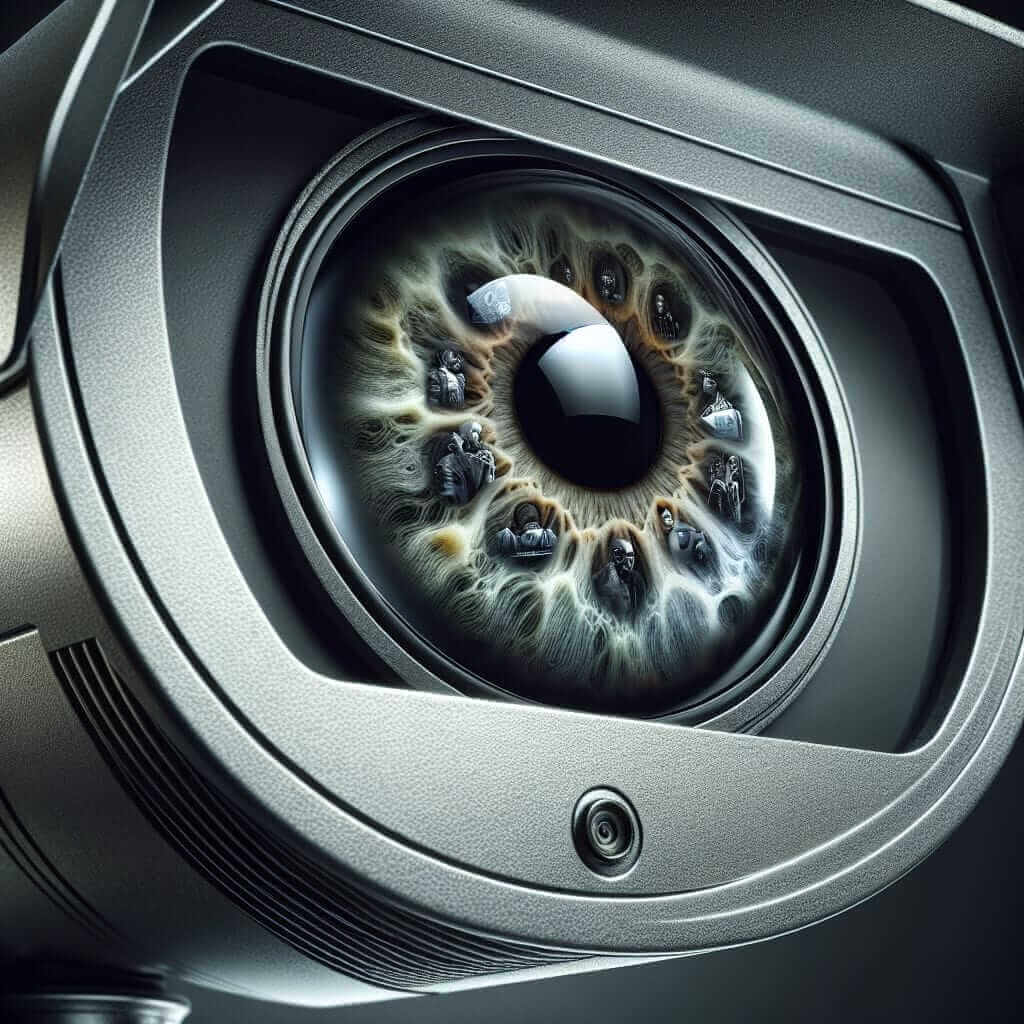The IELTS Reading test evaluates your ability to comprehend written English. One of the prevalent topics in IELTS Reading passages is the ethical concerns surrounding new technologies, such as facial recognition. This topic has constantly appeared in various forms in past IELTS exams due to its relevance and contentious nature.
Understanding the ethical debates concerning facial recognition technology is crucial for several reasons. Firstly, it’s a timely subject consistently appearing in news and academic discussions. Secondly, it equips you with a rich vocabulary and set of idiomatic expressions applicable to this context. Finally, it hones your analytical skills as you discern nuanced arguments and viewpoints.
In this article, I will prepare a practice Reading passage centered around the question: “What are the ethical concerns surrounding the use of facial recognition technology?” This practice exercise is designed to mimic the structure of a real IELTS Reading test, ensuring you get the most out of your practice.
Practice Reading Passage
Title: Ethical Concerns Surrounding Facial Recognition Technology
Facial recognition technology has become an integral part of modern society, utilized in areas ranging from law enforcement to personal security. Despite its advantages, this technology raises several ethical dilemmas.
Firstly, the issue of privacy is paramount. Facial recognition systems collect and store vast amounts of data about individuals without their consent. This intrusiveness risks creating a ‘surveillance society’ where individual freedoms are eroded. Furthermore, many systems lack robust data protection measures, making personal information vulnerable to breaches.

Secondly, the accuracy and fairness of facial recognition tools are contentious. Studies suggest that these systems often exhibit biases, particularly against minorities and women. Such biases can result in false identifications and wrongful arrests, highlighting significant flaws in the technology’s implementation.
Moreover, the opaque nature of facial recognition algorithms is concerning. Many systems operate as ‘black boxes,’ providing no transparency about how decisions are made. This lack of accountability makes it difficult to challenge incorrect or unfair decisions, undermining trust in the technology.
Finally, there are worries about the potential misuse of facial recognition technology. Authoritarian regimes, for instance, might use it to monitor and suppress dissent, impinging on human rights. Similarly, companies may exploit this technology for intrusive marketing practices or employee surveillance.
In sum, while facial recognition technology offers notable benefits, it is incumbent upon us to scrutinize and mitigate its ethical ramifications. Only through stringent regulations and transparent practices can we harness its potential without compromising fundamental ethical standards.
Questions
Identifying Information (True/False/Not Given)
- Facial recognition technology is only used in law enforcement.
- Many facial recognition systems are criticized for their lack of accurate data protection.
- Facial recognition tools are equally accurate for all demographic groups.
Multiple Choice
-
According to the passage, what is one major ethical concern associated with facial recognition technology?
A. High cost of implementation
B. Intrusion on individual privacy
C. Difficulty in programming
D. Lack of utility -
The phrase ‘surveillance society’ suggests a society where:
A. Everyone has equal privacy protection
B. There is constant monitoring of individuals
C. Surveillance cameras are rarely used
D. Individual freedoms are promoted
Matching Information
-
Match each concern with the appropriate description from the passage:
- A. Privacy Issues
- B. Biased Algorithms
- C. Lack of Transparency
- D. Potential Misuse
i. Risk of wrongful arrests due to inaccurate identifications
ii. Authoritarian regimes could use it to monitor dissent
iii. Difficulty in understanding how decisions are made
iv. Collection of data without people’s consent
Sentence Completion
- Robust data protection measures are crucial because they prevent __.
- The term ‘black boxes’ refers to systems __.
Answer Key and Explanation
- False. The passage mentions that facial recognition technology is used in a variety of fields, including law enforcement and personal security.
- True. The passage states that many systems lack robust data protection measures.
- False. The passage highlights that studies suggest biases exist in these tools against minorities and women.
- B. Intrusion on individual privacy
- B. There is constant monitoring of individuals
-
- i = B
- ii = D
- iii = C
- iv = A
- Data breaches
- That lack transparency
Common Mistakes and Tips
- Misinterpreting the Passage: Ensure you read slowly and carefully. Misunderstanding key points can lead to incorrect answers. Practice skimming for main ideas and scanning for details.
- Matching Information Errors: To avoid confusion, underline or highlight keywords related to each concern.
- Vocabulary Challenges: Familiarize yourself with key terms related to facial recognition technology, such as “intrusiveness,” “biases,” and “transparency.”
Vocabulary List
- **Consent (n.) /kənˈsɛnt/: Permission for something to happen or agreement to do something.
- **Surveillance (n.) /sərˈveɪləns/: Close observation, especially of a suspected spy or criminal.
- **Bias (n.) /ˈbaɪəs/: Prejudice in favor of or against one thing, person, or group.
- **Intrusive (adj.) /ɪnˈtruːsɪv/: Causing disruption or annoyance through being unwelcome or uninvited.
- **Opaque (adj.) /oʊˈpeɪk/: Not able to be seen through; not transparent.
Grammar Point
-
Relative Clauses: “Many systems that lack robust data protection measures make personal information vulnerable.”
- Formula: [Noun] + [Relative Pronoun] + [Verb] + Rest of Clause
- Example: “The book that I read was fascinating.”
Conclusion
To excel in the IELTS Reading section, regular practice with realistic passages is crucial. This passage on the ethical concerns surrounding facial recognition technology offers a comprehensive topic to hone your reading skills. Understanding such contemporary issues will not only prepare you for the test but also broaden your general knowledge, aiding in other sections like Writing and Speaking.
For more insights on facial recognition technology and its privacy implications, you can read our article on what are the implications of facial recognition technology on privacy.
Good luck with your preparation, and remember, consistent practice is the key to success!